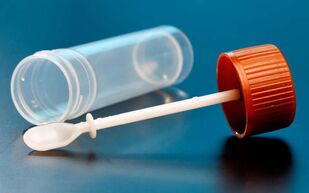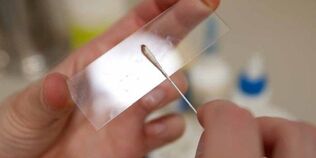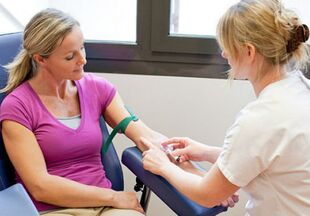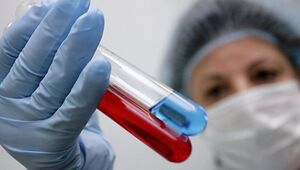What tests need to be done to identify worms?
Worm tests must be done regularly to identify diseases promptly. The most famous of these is the fecal analysis, which is done before going to work or nursing, but this is not the only way and not the most reliable way to identify parasites. The most accurate answer will be given by a combination of tests.
What tests to find in depth
The list of tests that must be done to identify parasites is quite long.
The main ones are:
- Fecal analysis, also known as helminth eggs, is the most common method. Pros - using a lot, no complicated equipment required. Minus point - inaccuracy;
- ELISA, also known as a blood test for worms. Advantages - high precision. Disadvantages - revealing only certain stages of the parasite's development, at other times, questionable results;
- Analyze other biological media (urine, sputum, duodenal substance, epidermis). Advantages - they allow you to identify parasites in localizations that are inaccessible to other analyzes. Cons - related to a significant inconvenience for the patient.
Usually, a patient is prescribed a combination of several tests to identify the parasite. The recovery criteria are considered negative ELISA results and some negative results of the study of the biological environment where worms were detected.
Analyzing for worm eggs
Most worms live in the intestines, so the most common worm test is the stool test. He is prescribed for routine adult and child check-ups, before being sent to a nursing home or children's camp, as part of the health record, during his stay in hospital. Additionally, this analysis was performed by people who had come into contact with infected patients who ate food that had not been examined, who had noted symptoms characteristic of worms.

Without special preparation for your analysis, you can take stool at any time of the day, but the most obvious sign is morning stools. Immediately before giving birth, it is necessary to clean the epithelium to avoid impurities and secretions from the genitals.
Feces for worms analysis was collected in a special bin. It is sealed, and a special spoon is attached to take the ingredients. To get the most informative portion of a material, you need to take a sample from the middle of a fraction. The container should be about one-third filled. You need to deliver it to the lab the same day.
In a laboratory, an expert will examine the feces under a microscope and identify the worm eggs in it. Most of them have a characteristic shape that allows you to precisely identify the type of worm. Based on the results of the analysis, a conclusion is made about the absence of eggs or about their presence and type, after which treatment will be prescribed.
This is the most common but least accurate worm test. The reason is that there may not be eggs in the portion that have entered the container, despite the fact that there are worms. Therefore, if the patient complains of characteristic symptoms or has been exposed to the source of infection, it is necessary to undergo 5-6 tests with an interval of 2-3 days. In this case, the ability to detect parasites increases significantly. Along with the study of feces, other diagnostic procedures are prescribed.
Shaving

This analysis often complements the integral. The most accurate results are obtained when diagnosing pinworms that lay eggs on the skin surface near the anus. Such analytical indications are routine examinations for children and adults, enrollment of children in kindergartens, schools, camps or nursing homes, children and adults hospitalized, suspected pinworm infection (pruritus). anus, digestive disorders, contact with the patient). Often, children suffer from this disease, which explains the name of the type of worms (children's pinworms).
There is no preparation for worm analysis, you should not wash the epithelium - in order to wash the parasite's eggs, you need not to shower or shower the night before. Analysis is done in the morning. A special film is used to collect material from the skin of the interplastic folds. Research is also done under a microscope. It does not detect other types of worms, except pinworms.
Urine analysis
This exam is the least recommended, as the parasites almost never reside in the urine. Situations can occur when pinworms are found in urine analysis, but this indicates a violation of the rules of analysis - the parasites and their eggs enter the container from the perineal skin. Most often, this condition occurs in girls, less commonly in boys.
But there are still signs for experimentation. Some tropical parasites live in the kidneys and urinary organs, for which a person is "rewarded" with a trip to Asian and African resorts. With the increasing availability of exotic recreational areas, the spread of nonspecific parasites in our country is also on the rise. For this reason, it is advisable to do urine and blood tests for worms after your trip to resorts.
Worms found in urine:
- Trichomonas;
- Distomum haematobium;
- Filaria sanguinis hominis;
- Taqnia echinococcus.
Also in the urine may contain eggs of liver parasites - echinococcus and helminths.
Sputum Analysis
There are several parasites that live all or part of their life in the lungs. Symptoms of their appearance are atypical - catarrhal phenomena that develop in the bronchi (inflammation, cough, wheezing). Hemoptysis, unexplained pneumonia and other lung phenomena may be noted.
Parasites are detected by worms in sputum:
- Roundworms - in the larval stage they need oxygen;
- Echinococci and alveoli are tissue parasites that live in parenchymal organs, including the lungs;
- Dwarf fluke - lives mainly in the lungs;
- Strongyloidiasis, noncatorosis - parasitic disease characterized by localization in the intestine, location in the lungs found to be atypical.
To remove phlegm, no special preparation is required, but you should brush your teeth and take it out in the morning. Before that, you should drink plenty of water - this will help improve sputum production. The sampling equipment should be clean, but not necessarily sterile - bacteria do not play a role in diagnosis. In this case, both the parasite itself and their eggs are detected. If the patient is unable to cough up phlegm, it is removed from the trachea by vacuum aspiration.
It is possible to use drugs that improve phlegm excretion, and stimulate its formation for more accurate worm analysis results. Combined with blood test to find worms gives very accurate results. Unlike a stool test, eggs are more likely to be found.
Blood test

ELISA, or blood test for worms, is the most accurate method of identifying them. The helminth induces a strong response from the immune system - the content of eosinophils increases, the production of immunoglobulins increases and the appearance of antibodies specific to the parasite. Based on their findings, an ELISA method was developed.
Antibodies to the parasite are extremely specific - they can be clearly diagnosed, while they are present in the blood only in the presence of the parasite and for 3 weeks after they disappear.
Vein blood is required for analysis. No special training required. Results can be received within two days. Nearly 100% accurate, antibody specificity does not allow false results. Recovery criteria were negative results after one month of treatment.
Analyze duodenum contents
The bile ducts and pancreas open into the duodenum. These organs are often affected by echinococcosis and opisthorchiasis. The parasite lays eggs, they pass through a tube into the intestine. The method of worms analysis of substances in the duodenum allows you to identify these diseases much more accurately than analyzing the stool.
Material taken by duodenal probe on an empty stomach. If the patient has a gag reflex, pain relief is applied. This procedure is quite annoying, so it is used only in cases when the results of other tests are in doubt.
When do you need worms testing
Worm tests should be performed in the following cases:
- Patient is presenting symptoms of helminthiasis;
- Patient has been in contact with sources of infection (patient, product not tested, in an unfavorable sanitary environment);
- It is necessary to confirm that the patient is not the source of infection (employment, health record, suburban rest, hospitalization).
How to do a deep check

To be tested for worms, you need a referral from your general practitioner. Most exams require no preparation, and if there are shades, a doctor will interpret them when prescribing a study. An appointment is required for the doctor to write a referral.
In commercial clinics you can take tests regardless of the indications. Prices vary considerably. Time to take the results of stool and curettage is about a week, urine, sputum, blood test is about 2 days, depending on the workload of the laboratory.
What types of helminths can be detected with tests
Worm analysis detects almost all types of parasites - intestinal and gastrointestinal forms. The most accurate is a blood test for worms, which allows you to identify the parasites.
















































